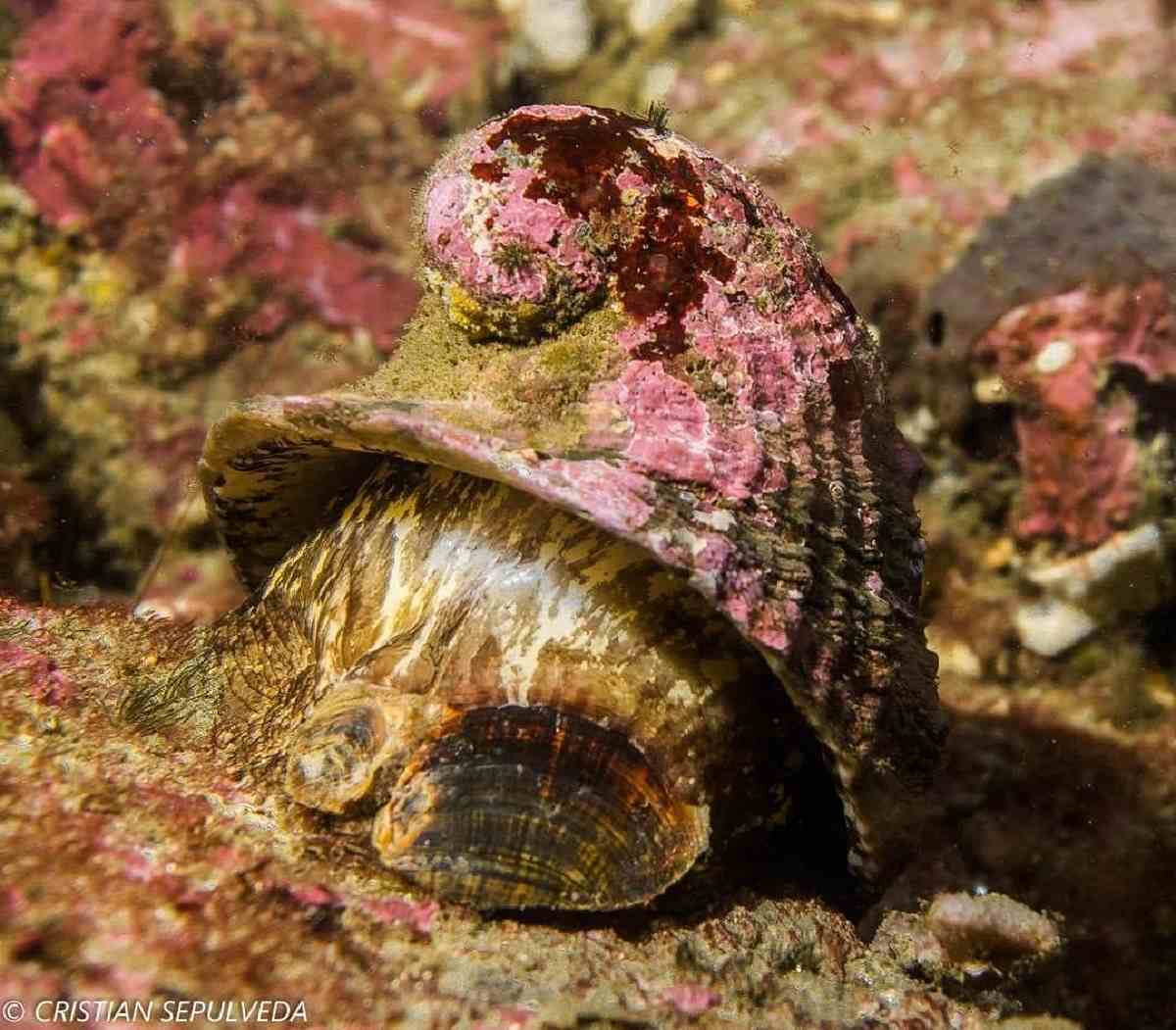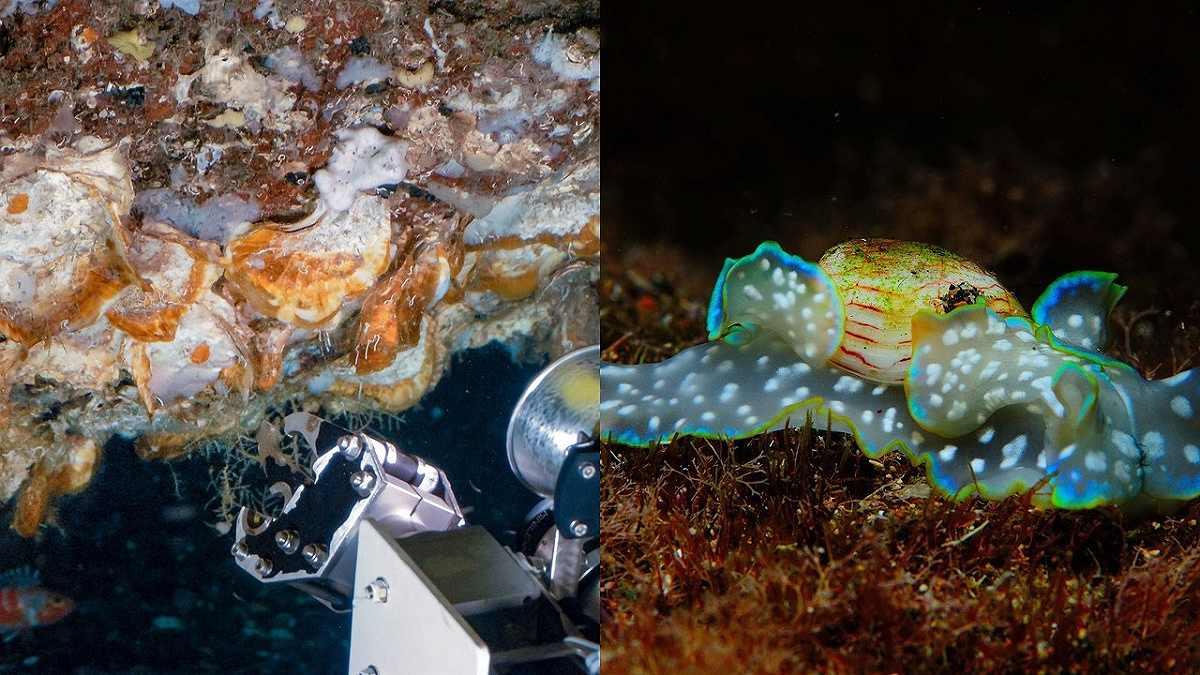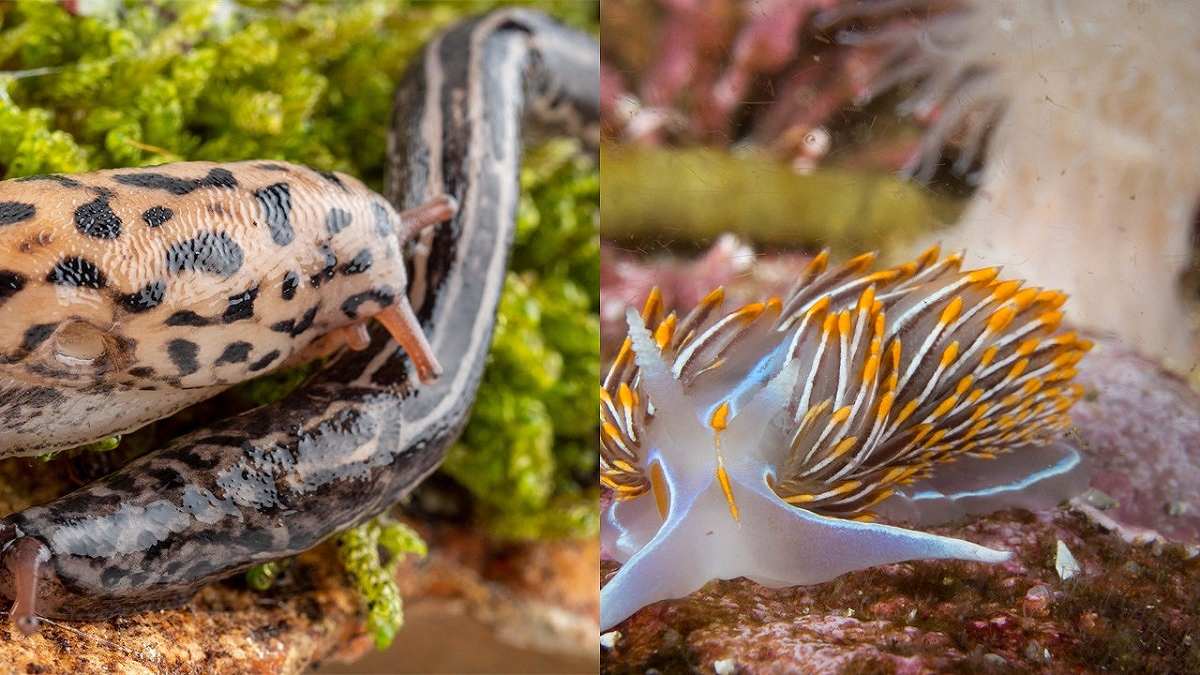
The Chilean abalone (Concholepas concholepas), winner of the international “Mollusc of the Year”
12:46 JST, March 30, 2023
PARIS (AFP-Jiji) — In the end it was neither beauty, nor gymnastic mating rituals that won the public over.
In voting the Chilean abalone to victory in the international “Mollusc of the Year” contest on March 23, people seem to have voted with their stomachs.
The edible underdog — known commonly as the “loco” — pulled in 42% of the global votes, despite being up against some formidable opponents. Contenders included the psychedelic attractions of the Wavy Bubble Snail and the giant Methuselah oyster, which can live for 500 years.

Methuselah oyster (Neopycnodonte zibrowii), left, Wavy Bubble Snail (Micromelo undatus)
If sporting acclaim and recognition wasn’t enough, the tough-shelled sea snail will now have its entire genome decoded by the LOEWE Centre for Translational Biodiversity Genomics, which runs the competition, in an effort to benefit science and humanity.
The loco’s nominating researchers basked in the victory.
“It feels great. As you can understand, the loco is not the most attractive mollusc,” researcher J. Antonio Baeza of Clemson University in South Carolina told AFP.
“Although I guess it must be way more tasty than a sea slug.”
Served simply with a dab of mayonnaise or added to soup, this snail is a traditional delicacy in its home countries of Peru and Chile.
That popularity may have helped the Chilean abalone to victory, but the loco’s potential extends far beyond the dinner plate.
Unlocking the top predator and keystone snail’s genome will reveal how marine invertebrates deal with overfishing and pollution on a molecular level, researchers said.
It could also potentially boost the fight against certain types of cancer in humans thanks to the oxygen transporting pigments in its blood.
Mysterious molluscs
The annual competition is held to raise awareness of this diverse animal group, which ranges from the deep sea colossal squid to garden slugs.
Molluscs have been around for more than 500 million years and are the second largest phylum of animals after insects.
But they are shrouded in mystery, organizers said, because of a lack of genetic research.
The aquatic South American snail made its slow slide to victory after a long list of 85,000 contenders was whittled down to five finalists that slugged it out in a public vote that ended on Sunday.
In second place came the billowing neon skirts of the Wavy Bubble Snail, followed by the long-lived Methuselah oyster and the thick-horned nudibranch.
In last place was the leopard slug — the only land mollusc on the list, notable for its feline body markings and an intricate mating ritual that sees couples climb a tree together and then abseil off.

Leopard slug (Limax Maximus), left, Thick-horned nudibranch (Hermissenda crassicornis)
The loco sea snail joins the Greater Argonaut octopus and the spectacular Cuban painted snail in the mollusc hall of fame.
And given the slow pace of the competition, organizers said they are already accepting nominations for 2024.
Top Articles in Science & Nature
-

Japan Institute to Use Domestic Commercial Optical Lattice Clock to Set Japan Standard Time
-

Japan to Face Shortfall of 3.39 Million Workers in AI, Robotics in 2040; Clerical Workers Seen to Be in Surplus
-

Record 700 Startups to Gather at SusHi Tech Tokyo in April; Event Will Center on Themes Like Artificial Intelligence and Robotics
-

iPS Treatments Pass Key Milestone, but Broader Applications Far from Guaranteed
-

iPS Cell Products for Parkinson’s, Heart Disease OK’d for Commercialization by Japan Health Ministry Panel
JN ACCESS RANKING
-

Japan PM Takaichi’s Cabinet Resigns en Masse
-

Japan Institute to Use Domestic Commercial Optical Lattice Clock to Set Japan Standard Time
-

Israeli Ambassador to Japan Speaks about Japan’s Role in the Reconstruction of Gaza
-

Man Infected with Measles Reportedly Dined at Restaurant in Tokyo Station
-

Videos Plagiarized, Reposted with False Subtitles Claiming ‘Ryukyu Belongs to China’; Anti-China False Information Also Posted in Japan























